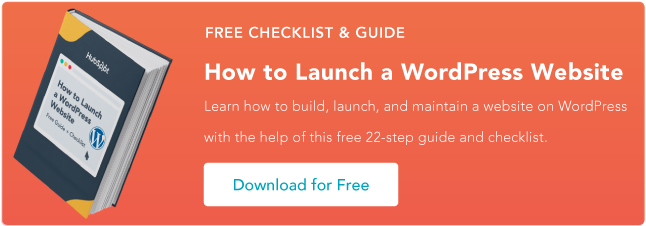If you don't know where to begin, we have some good news. There are plenty of tools available that will help you measure your WordPress site's speed and improve its performance. Let's walk through some of the tools you can use to begin.
Four Tools to Measure Your WordPress Site's Speed
Ready to discover the best tools you can use to measure site speed and optimize it for performance? Let's dive in.
1. SuperbThemes Page Speed Checker
 One common misconception is that you need to have a lot of experience working with websites to improve your site's loading speed. With the support of SuperbThemes' Page Speed Checker, you can quickly get more information about how your website is performing. Once you have this additional insight, you can decide where you want to go from there to optimize it for speed. This is a particularly good solution for newer WordPress website owners because it focuses on solutions over technical explanations.
One common misconception is that you need to have a lot of experience working with websites to improve your site's loading speed. With the support of SuperbThemes' Page Speed Checker, you can quickly get more information about how your website is performing. Once you have this additional insight, you can decide where you want to go from there to optimize it for speed. This is a particularly good solution for newer WordPress website owners because it focuses on solutions over technical explanations.
To begin, type your website's URL and hit the "Check Pagespeed" button to get a strategic overview of your site. This tool provides an overall grade and four major indicators:
-
Server load time
-
Content load time
-
Fully loaded time
-
On-page SEO
 Of course, these metrics aren't sufficient for a complex site assessment, but they are helpful for a brief evaluation. Yet, the standout feature of the SuperbThemes Checker is thefocus on solutions. In addition to the above metrics, the tool has a section for issues and solutions.
Of course, these metrics aren't sufficient for a complex site assessment, but they are helpful for a brief evaluation. Yet, the standout feature of the SuperbThemes Checker is thefocus on solutions. In addition to the above metrics, the tool has a section for issues and solutions.
Instead of showcasing endless technical details, the checker suggests well-known plugins to fix performance issues. For example, SuperbThemes checker suggests WP Rocket as the best solution for caching a website. It also mentions WP Super Cache as a free alternative but warns that it requires some technical skills.
Ideal for:
-
Webmasters who lack time and want a fast and serious solution
-
Brief evaluations of a website performance
Advantages:
-
Simple, free, no registration required
-
Focus on solutions, not on technical aspects
2. PageSpeed Insights
 Next up is Google's PageSpeed Insights, which provides more information about how Google views your site. PageSpeed Insights started as a simple tool to audit the mobile-friendliness of a website.
Next up is Google's PageSpeed Insights, which provides more information about how Google views your site. PageSpeed Insights started as a simple tool to audit the mobile-friendliness of a website.
Over time, it's become a relevant tool to check how your site is performing. PageSpeed Insights is a highly-complex tool offering information about site performance, accessibility, best practices, and SEO. It rates each website and displays the Core Web Vitals metrics.
Despite the complexity of the information provided, PageSpeed Insights is simple to use. Just type in the website URL and hit the Enter tab. Be aware that it provides different data and grades for mobile and desktop versions. The score of your website is based on the following metrics:
-
FCP (First Contentful Paint)
-
SI (Speed Index)
-
LCP (Largest Contentful Paint)
-
TBT (Total Blocking Time)
-
CLS (Cumulative Layout Shift)
Google publicizes how these metrics weigh in the overall score. Therefore, you can ultimately improve your website rating by improving these metrics. PageSpeed Insights also provides concise and helpful recommendations to speed up your website. For the best results, continue to optimize your site until it's in the green zone and achieves a 90+ rating for mobile and desktop.
Ideal for:
-
All website owners— because everyone wants their website to rank higher on Google
Advantages:
-
Simple to use
-
Provides a wealth of data
3. WebPageTest
 PageSpeed Insights is highly effective and easy to use, but users don't have control over testing conditions. That's where WebPage Test steals the show. Website owners who target a regional market want to have their websites tested from the closest servers. With WebPageTest, you can easily do so. It allows all kinds of users—unregistered, registered, and paid customers—to customize the testing conditions. On top of that, it's quite simple to select from the testing conditions.
PageSpeed Insights is highly effective and easy to use, but users don't have control over testing conditions. That's where WebPage Test steals the show. Website owners who target a regional market want to have their websites tested from the closest servers. With WebPageTest, you can easily do so. It allows all kinds of users—unregistered, registered, and paid customers—to customize the testing conditions. On top of that, it's quite simple to select from the testing conditions.
Head to the homepage, type in the website URL, and select "Site Performance" from the drop-down menu. Other alternatives include CoreWeb Vitals, Lighthouse, Visual Comparison, and Traceroute. Next, click the "Advanced Configuration" drop-down button to access the settings. Isolate the testing location, the browser, the connection type, and the number of tests.
WebPageTest impresses not only with its wide suite of testing choices but also with the large volume of details provided about the site's performance. The Performance summaryoffers a comprehensive overview of several important metrics including:
-
Time to First Byte
-
First Contentful Paint
-
Largest Contentful Paint
-
Cumulative Layout Shift
-
Total Blocking Time
-
Page Weight
For additional insight, head over to Details,where you can learn how to speed up your site. It displays a visual page-loading process which is of crucial help to understanding the experience of the site visitors. The waterfall view displays a graphic outlining the requests and a few relevant metrics.
Those seeking more control over the optimization process should visit the Request details, which features each request and useful details about them, like content type, download time, and status code.
Ideal for:
-
Webmasters who need granular control over the testing conditions
Advantages:
-
Detailed and impactful information about the site's performance
-
Plenty of suggestions, even for unregistered users
4. GTmetrix
 Like WebPageTest, GTmetrix is an outstanding tool embracing the freemium model. Paid customers benefit as they can access the entirety of features, while registered users have some minor limitations. And you don't have to create a free account to use GTmetrix.
Like WebPageTest, GTmetrix is an outstanding tool embracing the freemium model. Paid customers benefit as they can access the entirety of features, while registered users have some minor limitations. And you don't have to create a free account to use GTmetrix.
One of the biggest advantages of GTmetrix is its ability to customize test conditions. The testing servers cover the entire planet, numerous browsers can be selected, and the Internet connection types simulate all the ways of connecting to the Internet. On top of that, GTmetrix allows retesting and enables you to compare your website to others. This functionality is helpful as it lets you see how your site's speed stacks up with the competition.
This tool provides a GTmetrix grade, from A to F, and a set of Web Vitals metrics for each website. These are strategic indicators that let you know the current state of the website's performance. Some other key information make GTmetrix supplies includes:
-
Summary shows the main issues of the website, total page size, number of requests, and a speed visualization.
-
Performance displays a bunch of useful metrics.
-
Structure groups the issues by their importance and provides actionable tips to fix them.
-
Waterfall displays a request-by-request visualization that is of great value for advanced webmasters.
-
Video records a video to help users get a better idea of the experience of site visitors.
-
History outlines how your website performed over time.
Ideal for:
-
Webmasters who need a large volume of information
Advantages:
-
A plethora of details about the site's performance
-
Actionable tips to fix all the performance issues
So, what's causing your speed issues?
It takes a bit of detective work to determine why you need to speed up your website. Moreover, the complex technical details are daunting for some users who may need additional help. To save your time and nerves, we compiled a list of common issues and suggestions to fix them.
Poor-Quality Hosting
If you're experiencing slow load times, your website hosting may be to blame. Your host platform influences speed, stability, and security. The worst scenario is that the hosting platform is so poor that any endeavors to improve the site's performance are in vain.
The role of the host is crucial in the complicated equation of a website's loading speed. Less-experienced webmasters especially should audit the host before performing any speed improvements. Every hosting company should provide a detailed report about their services, so you should study it. On top of that, you can almost certainly find some detailed reviews of any hosting providers you are considering, so don't be afraid to do your homework.
Unoptimized Images
Images bloat the website file size and consequently slow down the loading speed. The large majority of webmasters know that optimizing images is essential, but fail to do so.
Luckily, speed checkers highlight this issue, and optimizing the images is quite simple. Moreover, a bunch of image optimization plugins are available in the WordPress repository, or you can do so manually, using a tool like Squoosh.
Too Many HTTP Requests
Usually, a complex website has many requests. As a result, the more complex a website is, the more difficult it is to make it load fast. Reducing the number of HTTP requests is the solution, but at the same time, it isn't feasible to trim your site functionality just for this purpose.
Page checkers show the number of requests, but, for some people, it looks like it's too much information to parse. Therefore, audit the design and functionality of your website to reduce the number of requests. Before starting to optimize your website, answer these questions:
-
Are all images, image sliders, or videos uploaded on the website 100% necessary? Would their deletion or replacement substantially impact the design/functionality?
-
Is there enough whitespace?
-
Are you sure that all the plugins installed are useful?
Lack of a Speed Enhancement Plugin
Fortunately, plugin developers launched amazing products that streamline the speed up of WordPress websites. Install a performance plugin if you don't want to write snippets of code, perform SQL commands, or minify code by yourself. However, be mindful that having too many plugins can negatively impact page load time, so be cognizant of what you're using on your site.
Speed Up Your WordPress Site Today
Measuring and optimizing your WordPress site's speed is crucial for enhancing user experience, improving search engine rankings, and ultimately driving more traffic and conversions. By using the tools and suggestions showcased, you can significantly improve your site's performance and ensure that it loads quickly and smoothly for your visitors.
WordPress Website



![How to become a WordPress developer [+ tips from WCEU speaker Paul Bearne]](https://53.fs1.hubspotusercontent-na1.net/hubfs/53/59_How%20to%20Become%20a%20WordPress%20Developer.png)








